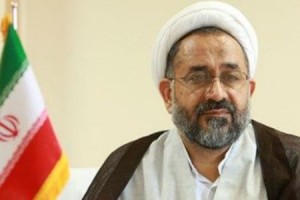 Iran’s intelligence minister was caught in an apparent high-level political dispute Sunday after offering his resignation from President Mahmoud Ahmadinejad’s government but later being ordered to remain by Iran’s top leader, news reports said.
Iran’s intelligence minister was caught in an apparent high-level political dispute Sunday after offering his resignation from President Mahmoud Ahmadinejad’s government but later being ordered to remain by Iran’s top leader, news reports said.
The conflicting signals over Heidar Moslehi suggested another point of friction between Ahmadinejad and Iran’s Supreme Leader Ayatollah Ali Khamenei over control of key posts.
Khamenei, who has the last word on all important decisions, is considered a supporter of Ahmadinejad’s government but has stepped in before to overrule him on political appointments.
The official IRNA news agency first reported that Heidar resigned in the latest apparent rift with Ahmadinejad’s government.
But just hours later, several semi-official news agencies, including Fars, said Khamenei opposed the resignation and said that Moslehi will continue in the post, which has played a key role in the crackdown on opposition following Ahmadinejad’s disputed re-election in 2009.
Traditionally, the supreme leader must approve the appointments for the ministers of foreign affairs, intelligence, defense and interior.
Moslehi’s offer to resign was seen as another high-profile rift between Ahmadinejad and a member of his government over his hard-line policies — rivalries that could heat up ahead of the next parliamentary election set for March 2012.
The move also could be linked to possible intelligence failures over a powerful computer worm, known as Stuxnet, that was detected last year in computers involved in Iran’s nuclear programs and other industrial sites.
On Saturday, Gholam Reza Jalali, head of a military unit in charge of combating sabotage, said the malware could have caused large-scale accidents and loss of life. Iran has claimed that the Stuxnet virus was traced back to Israel and the United States, but has offered no definitive evidence.
Iran has acknowledged the code infected laptops belonging to employees at its Russian-built nuclear power plant, whose launch has been repeated delayed. The virus also was believed to have temporarily crippled Iran’s uranium enrichment program last year.
In December, Ahmadinejad fired his longtime foreign minister, Manouchehr Mottaki, after apparent disagreements over how to handle Western pressures.
Khamenei did not publicly oppose the dismissal of Mottaki. However, many of Ahmadinejad’s conservative opponents criticized the move. AP

Leave a Reply
You must be logged in to post a comment.